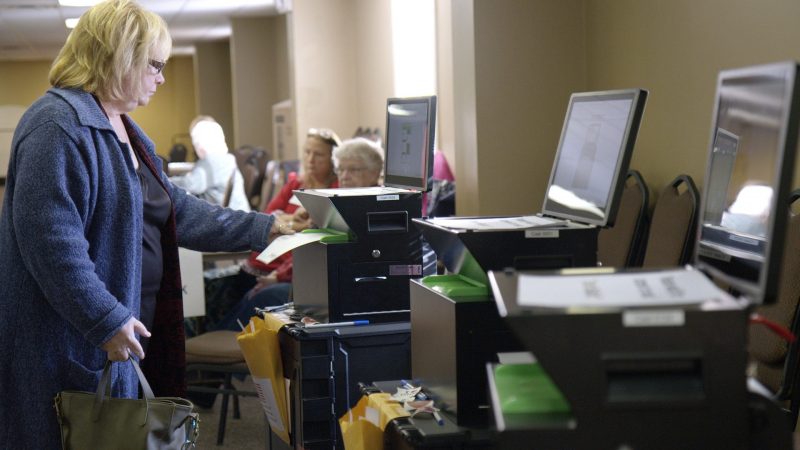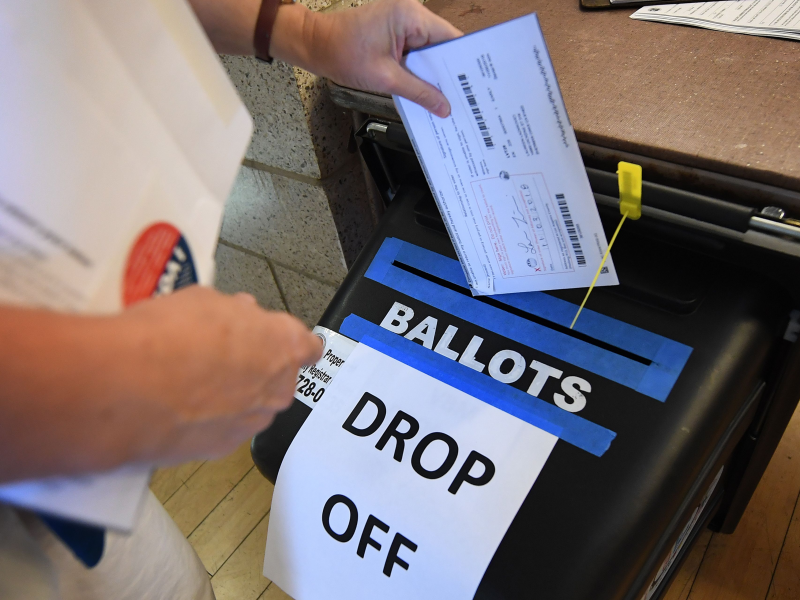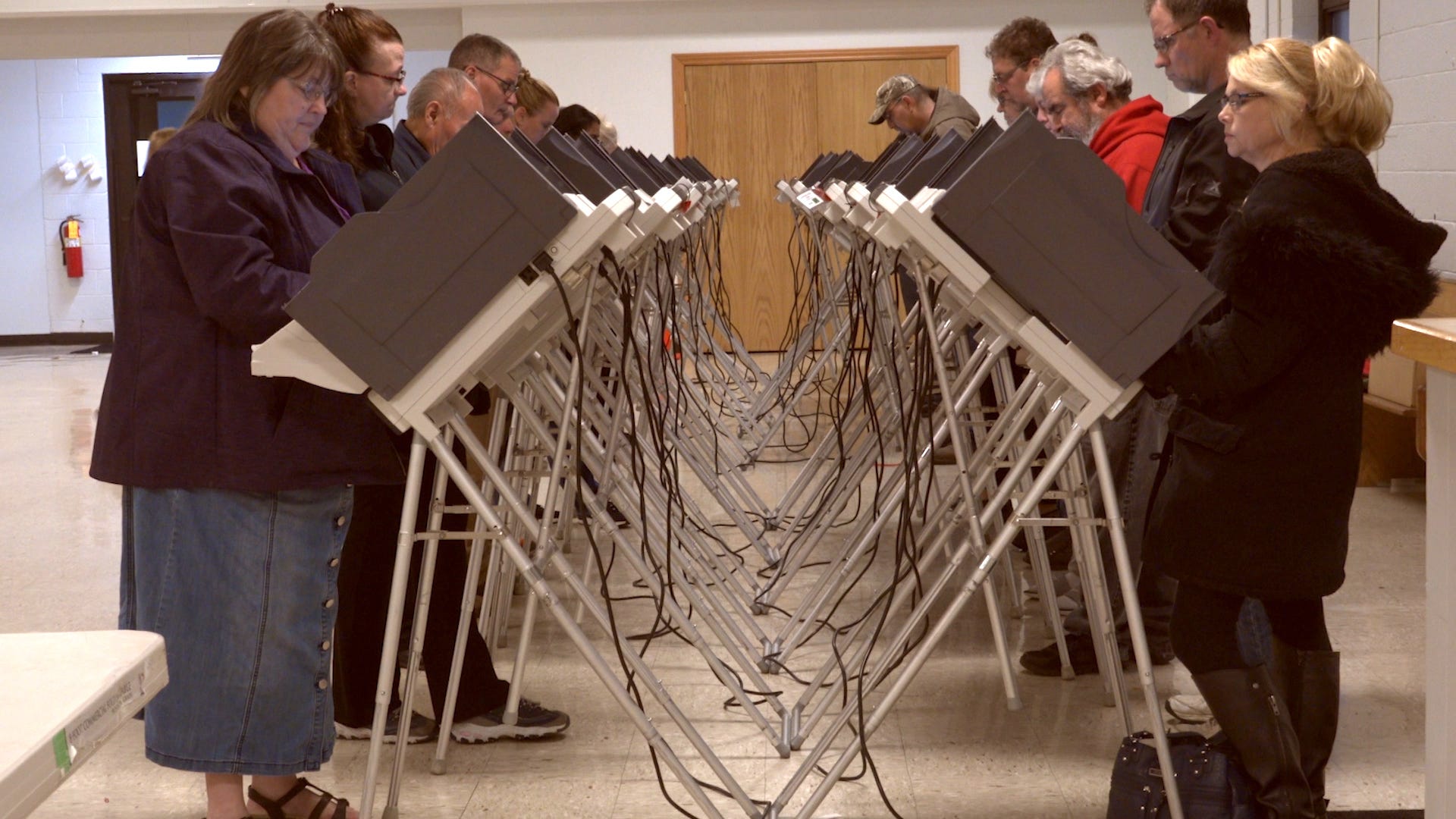- As the 2020 election cycle continues, more and more places in the US are switching over to using paper ballots.
- Experts say paper voting systems are the safest method for elections, as they are less vulnerable to hacking and manipulation.
- In Ohio, 12 counties have enlisted a new voting machine company that’s focused its innovation on paper and is challenging a market traditionally dominated by three legacy providers.
- But officials say when it comes to protecting our elections, the perception of security is ultimately more important than the reality.
- View more episodes of Business Insider Weekly on Facebook.
This story is based on an episode of Business Insider Weekly. Watch the full episode here.
Election officials across the country are under more scrutiny than ever as concerns over Russian election interference grow.
As presidential primary season ramps up, some Ohio counties are switching from digital voting systems to paper ballots, which are immune from hacking or digital manipulation.
In doing so, local officials are putting their faith in a new voting technology company – Clear Ballot Group – as Americans’ faith in their elections hangs in the balance.
We spoke with people on the frontlines of election security to find how the old-fashioned system of paper ballots could ensure every vote gets counted.
How paper could restore faith in elections
Ohio's primary is on March 17, and the state has been preparing for years - spending nearly $115 million to replace voting machines that were often over a decade old.
A dozen counties in the state chose to buy machines from a new voting system company called Clear Ballot Group. The 11-year-old company, whose voting system was federally certified in 2018, has been implementing paper-based voting systems in counties across the US.
"We have focused all of our innovation around the paper ballot," James Rundlett, national sales manager for Clear Ballot, told Business Insider Weekly. "It is the most auditable and transparent way of running an election. You always have that tangible physical record of the vote."
In Clear Ballot's system, voters fill out paper ballots by hand and then feed them through a scanner. Images of each ballot are then saved on the machine's internal memory and on thumb drives. After polls close, the files offer immediate results and provide a paper trail. Physical ballots are saved in case of a recount.
"We were looking for something that could grow with us. Something that … had more vision than it had history," said Jeff Monroe, the election chairman in Ohio's Warren County, one of the jurisdictions switching to Clear Ballot's system this election cycle.
Before this year, the county had been using voting machines made by a company called Election Systems and Software - one of three legacy businesses that dominate the $300 million voting systems industry, along with Dominion Voting Systems and Hart InterCivic.
Although all Ohio voting systems are required to have a paper trail, Warren County officials wanted to update its old hardware in part to combat voters' fears of a compromised election.
"I don't have the same iPhone I had in 2010. I don't have the same laptop I had in 2010," Jordan Esten, a Clear Ballot board member, told Business Insider Weekly. "Why am I doing that with my voting platform, my voting systems?"
Americans are worried about election integrity

The election cycle has already gotten off to a rocky start, with several technical issues plaguing Iowa's Democratic caucus in early February.
Delayed results and inconsistencies in the vote totals shook voters' confidence in the system.
As the 2020 election cycle continues, pressure is mounting on other states to get it right.
"You don't get to get it wrong. You can't. It has to be perfect," Monroe said.
For election officials, the stakes couldn't be higher. Only one-third of Americans said they have high confidence in an accurate vote count, according to a poll by the Associated Press and the NORC Center for Public Affairs Research.
US intelligence agencies found that Russia interfered with the 2016 presidential election through social media campaigns and by hacking into Democratic Party computer networks. They also reported that Russia searched for vulnerabilities in the election systems of all 50 states, although there was no evidence it changed any votes.
But for those involved in running elections, it doesn't matter that Russia's vote-hacking attempts were not proven successful.
"Perception is more important than reality in elections, and if there's a perception that an election was not fair, not counted properly, or was hacked … it doesn't matter whether it's true," Keir Holeman, Clear Ballot's vice president of technical services, told Business Insider Weekly.
Other places in the US are switching to paper

Warren County is far from the only place in America updating its voting systems ahead of the 2020 election. Some jurisdictions are switching to paper ballots for the first time after long periods of using digital voting terminals.
In 2018, 14 states were still relying on paperless voting systems in certain jurisdictions, according to Politico.
The outlet found that 45 of the nearly 600 paperless counties have already made the switch to paper ballots, and 166 more are either in the process of replacing their paperless machines or have plans to make the change.
But still, 193 jurisdictions have no plans to go paperless.
It wasn't a risk some in Ohio were willing to take.
"My goal is that when people go to bed on election night, they will know intuitively that their vote was counted, that their voice was heard," Ohio Secretary of State Frank LaRose told Business Insider Weekly.
"It's a constant ongoing job. Being prepared for 2020 will help us be prepared for the future."
